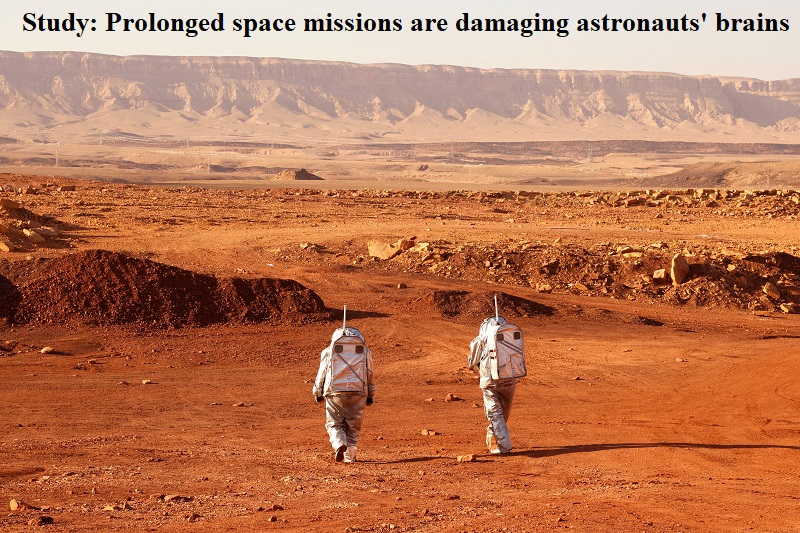
Experts have determined that extended space missions are detrimental to astronauts’ brains and recommend a recovery period of three years for the brain to recuperate from the effects of space travel.
This conclusion is based on recent research that examined how the brain responds to the absence of gravity in space. With the anticipation of prolonged space travel, including future expeditions to Mars, understanding the impact on the brain becomes crucial.
Researchers analyzed brain scans of approximately 30 astronauts taken before and after their space missions. They discovered that missions lasting more than six months resulted in significant enlargement of the brain ventricles, which may take up to three years to recover.
Ventricles are fluid-filled spaces in the brain that play a role in purifying, hydrating, and protecting the brain. Normally, the fluid is evenly distributed in the body, but the absence of gravity in space causes it to move upward, pushing the brain higher in the skull.
Rachael Seidler, a professor of applied physiology and kinesiology at the University of Florida and one of the study’s authors, explained that the longer astronauts spent in space, the larger their ventricles became. It was observed that it takes approximately three years between spaceflights for the ventricles to fully recover.
The research included astronauts who had spent two weeks, six months, or a full year in space. After two weeks, minimal brain alterations were noted, and after six months, the changes appeared to stabilize. This is beneficial for short-duration space trips, such as those offered by commercial space tourism initiatives like SpaceX.
Moreover, this information is valuable for astronauts embarking on long-duration missions like those to Mars. The fact that changes between six and twelve months do not exponentially increase provides some reassurance for these extended journeys. However, research on individuals who have spent more than a year in space is yet to be conducted.
The findings are seen as positive news, considering the eventual plan for longer space missions. The understanding of the brain’s response to prolonged space travel will be crucial in ensuring the well-being and safety of astronauts as space exploration ventures further into the cosmos.

Post Your Comments